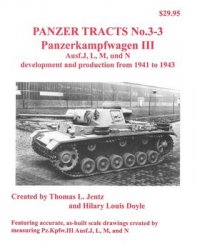Outside Indochina, however, the dominoes did not fall, and it remains to assess the conception of Indochina as a Cold War battleground - a conception that took shape first in Washington, as we have seen, early in the Franco-Vietminh struggle, and was crucially important to all that occurred in Indochina for the next quarter-century. Ho Chi Minh was a pawn of the Kremlin, so went the argument, and his struggle was one part of a global, Soviet-directed offensive; as such, he had to be stopped. This view of the stakes always had its critics, inside and outside the American government, and it was never a widely held view in official Paris. In retrospect, moreover, it looks decidedly dubious. Stalin had minimal interest in Indochina and, indeed, saw the conflict there as a nuisance. Neither he nor his Kremlin successors had major ambitions in that part of the world, and they sought at all times to avoid a major East-West military showdown over Vietnam. DRV leadership, meanwhile, though dependent on Soviet and Chinese aid after US assistance began flowing to the French, always had considerable (though never complete) success keeping its powerful patrons at arm’s length.
There’s a deeper problem here. It is not at all clear that had Paris and Washington opted against war, other powers would have concluded that the credibility of US and French commitments elsewhere in the world would be grievously damaged. Harry Truman, it is well to recall, had not vowed to keep China from going Communist in 1949, and that defeat caused no meaningful pro-Moscow realignment in the international system. Nor had the 'loss” of Cuba a decade later caused dominoes to fall in Latin America. By the same token, Nikita Khrushchev’s humiliation in Cuba in 1962 did not mean that the United States was free to run rampant in Eastern Europe. Nor had French prestige suffered when Charles de Gaulle withdrew from an untenable position in Algeria; if anything, it rose. The list goes on. As George Ball put it
In June 1965 in arguing (too late, as it turned out) against Americanization: “[N]o great captain has ever been blamed for a successful tactical withdrawal.”396
By their repeated public vows of determination regarding Indochina, French and American leaders backed themselves into a corner and reduced their maneuverability. And not merely in geopolitical terms: for successive American administrations, as for many of the governments of the French Fourth Republic, Indochina’s importance derived in large measure from the effects failure there could have at home, on elections, on political alignments and agendas, on individual careers. What James C. Thomson, Jr., said of the Vietnam-era US presidents could be said also of French leaders in 1946-54: they feared they were the last domino in line. From 1947 onwards, officials in Paris and Washington always publicly defined the struggle in Cold War terms, in terms of stopping the spread of Moscow-directed Communist expansion. It was a foreign-policy rationale, and it was indeed one reason for the long and bloody and ultimately unsuccessful effort aimed at defeating the forces of Ho Chi Minh. But only one. Other factors also shaped policy, notably careerist and domestic political calculations.
For Ho Chi Minh, too, the Cold War was an early and constant preoccupation, presenting a range of problems, challenges, and opportunities. Like Sukarno in Indonesia, Ho moved quickly after Japan’s capitulation to seek American assistance, framing his request in terms of Washington’s historic anticolonialism and support for self-determination. Like Sukarno, Ho was disappointed when US leaders chose instead to back their European Cold War allies. But whereas Sukarno subsequently proved his anti-Communist bona fides by suppressing internal Communist bids for primacy in the larger Indonesian independence movement, thereby ultimately earning the Truman administration’s backing for independence from the Dutch (granted in 1949), Ho, the veteran Comintern agent and Indochina Communist Party founder, turned instead to Moscow and Beijing. Their assistance was vital but came at a price: the DRV, as a member of the Communist bloc after 1950, would be unable to use the international system to full effect against France and, indeed, had now to contend with a hostile United States. To a degree not fully evident at the time, the superpower actions in Indochina in 1950 had the effect of intensifying the struggle and prolonging it, and of reducing (but not eliminating) the freedom of action of both France and the DRV.
Through it all, year after bloody year, DRV leaders persevered, mobilizing every available resource for the struggle, first against France, then the United States and its Saigon ally. Victory would come in the end, on a spring day in 1975, almost three decades after Ho Chi Minh declared Vietnamese independence. Ho himself would not live to see it. It would be left to colleagues to preside over the celebrations, and to tally up the enormous costs of thirty years of war.




 World History
World History









